Top 10 Longest Wars
Suggested by SMSThroughout the history of humans on earth, war has been a seemingly inevitable consequence. Sometimes these wars are extremely brief, but a number of wars have lasted for years – even decades. What makes this list a bit different is that there is a lack of agreement as to how long some of these wars really lasted (fights over wars – told you it sounded stupid). We’ve done our best to do the math for you and come up with the most accurate list of the longest wars.
10. Vietnam War

If you start the calculation from the time that the United States began assisting the South Vietnamese government in 1956 and go through to the American departure in 1975, you’ve got a 19-year armed conflict. Once the French departed in 1954-55, the United States took up the responsibility of training the South Vietnamese army to assist it to repel the North Vietnamese (who were receiving aid from the Soviet Union). The Vietnam War was part of a larger regional conflict that involved the neighboring countries of Cambodia and Laos (collectively, this was called the “Second Indochina War”). After years of increased combat (in which 58,000 Americans died), the United States began to slowly decrease its role in the early 1970s. In early 1975, the North invaded the South and quickly consolidated the country, with Saigon falling in April 1975. In July 1976, North and South Vietnam were joined as the “Socialist Republic of Vietnam.”
9. Second Northern War (a.k.a. “The Great Northern War”)
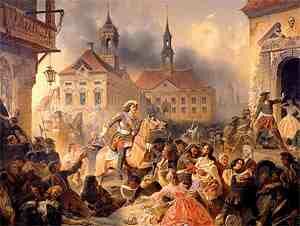
This 21-year battle (1700-1721) was sort of like a war over the North Pole. Russia, Denmark-Norway, and Saxony-Poland challenged Sweden’s supremacy of Sweden in the areas surrounding the Baltic Sea (where Sweden had spent the 17th Century taking over much of that area, right on Russia’s doorstep). Peter the Great decided it was time to send the Swedes packing, and he found allies who were also tired of Sweden’s minor version of empire-building. The end result of the Second Northern War? Sweden lost (hey – they were facing a lot of countries) and was forcibly evicted from all of its Baltic lands, which went to the possession of Russia.
8. Greco-Persian Wars
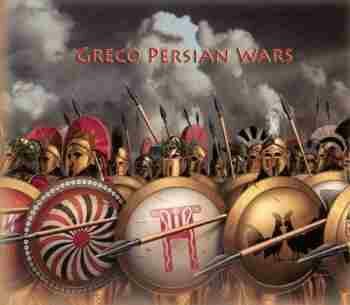
These were, as with so many on this list, a series of wars fought over a number of years. Essentially, he Greco-Persian Wars were conflicts between several Greek city-states and the Persian Empire that started in 499 B.C. and – off and on – lasted until 448 B.C. The name comes from the fact that the Persians invaded the Greek mainland. To the Greeks’ credit, they repelled the Persians both times they invaded. Not every Greek city-state fought against the Persians, though – some were neutral and others allied with Persia (if you think you can’t beat them with their ginormous army, you might as well join them).
7. Achinese War
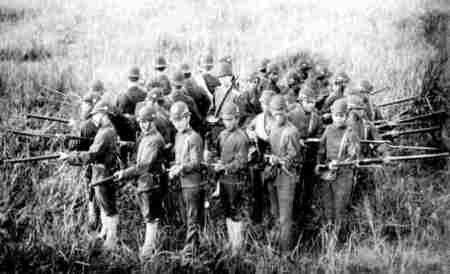
The Achinese War (also called the Aceh War) took place in Dutch Indonesia in the late 19th Century. In this conflict, the Dutch colonial government declared war on Aceh (a colony on what is now Sumatra) in March 1873, apparently because Aceh was speaking to the United States about possible trade. Although the Aceh people fought back the Dutch for many years, by 1904 most of Aceh was under Dutch control. The fighting is generally agreed to have occurred for at least 25 of those 31 years, but exact conclusions are difficult to reach. The estimated total casualties on the Aceh side are also a bit vague, but it is believed they were somewhere between 50,000 to 100,000 dead, with a million wounded.
6. Peloponnesian War
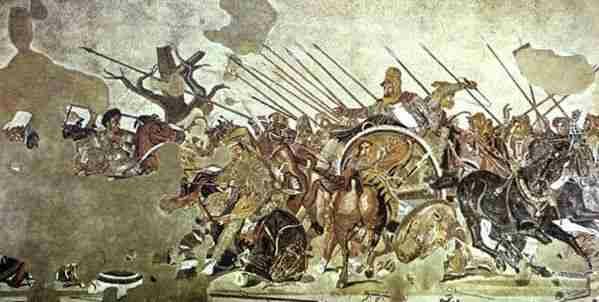
The Peloponnesian War, lasting from 431-404 B.C., was fought between the city-state of Athens and its allies against the Peloponnesian League, led by the city-state of Sparta. It is generally accepted that there are three phases to this war: (1) the Archidamian War, from 431 B.C. to 421 B.C., in which Sparta kept invading Attica, while Athens raided the Peloponnesian coast — ended with the signing of the Peace of Nicias; (2) 415 B.C. to 413 B.C., in which Athens dispatched a huge army to attack Syracuse (unsuccessfully); and (3) the Decelean War or Ionian War; from 413 B.C. to 404 B.C., in which Sparta, receiving help from Persia, undermined Athens’ leadership in the Greek city-states. When Sparta destroyed Athens’ navy, that ended the war.
5. Wars of the Roses
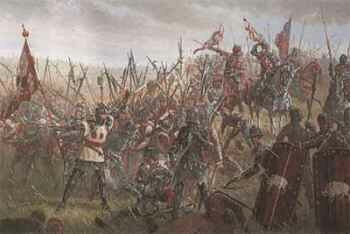
The Wars of the Roses was actually a series of civil wars that fought in medieval England from 1455 to 1487. The Wars were between the House of Lancaster and the House of York, with the prize sought being nothing less than the English throne – both Houses appeared to have a claim. The “Roses” name comes from the fact that each side had roses on their badges: a red rose for the Lancastrians, and a white rose for the Yorkists. Like many of the wars on this list, there is dispute as to the actual duration. In this case, many historians put the beginnings of the Wars with the first official battle at St. Albans in 1455. Others consider it to be when Henry IV usurped the throne of Richard II in 1399. Even going off of the later point (which seems to be the consensus), you’re looking at 30 years of off-and-on armed conflict.
4. Thirty Years’ War
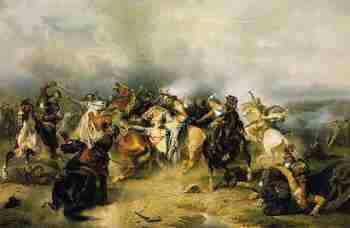
This was a series of wars (they all seem to be a “series,” don’t they?) that began in 1618 and lasted through 1648. This is a hard one to put into a nice quick synopsis, as the cause of the war and the reasons it lasted so long really evolved over time. The easiest way to state it: it began as a war between Protestants and Catholics in the Holy Roman Empire. However, disputes over the internal politics and balance of power within the Empire began to play an ever-growing role, and the war developed into a more general conflict involving most of the European powers in place at the time, with the rivalry between the Bourbons and Habsburgs for political preeminence taking center stage. The Thirty Years’ War ended up being the last major religious war in Europe, which was a welcome end to the frequent religious bloodshed that accompanied the Reformation.
3. Guatemalan Civil War
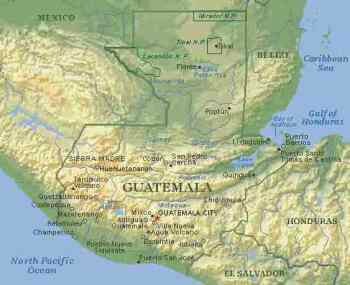
Beginning in 1960 and ending in 1996, the civil war in Guatemala lasted 36 years. A group of junior military officers revolted in 1960 in response to the autocratic rule of the government; this faction served as the basis for the groups who remained in armed combat against the Guatemalan government for the next 36 years. Throughout the course of this conflict, several left-wing guerilla groups fought both the government the right-wing vigilantes who terrorized leftist groups (or those merely suspected of that). Underscoring the conflict were centuries-old issues between the native Maya people and the descendants of the colonial explorers from Spain, particularly with respect to land use and rights. The protracted struggle officially ended when the Guatemalan government and the leftist guerrilla groups signed a peace accord, which served to protect the rights of the 23 different Native American groups in the country.
2. Punic Wars
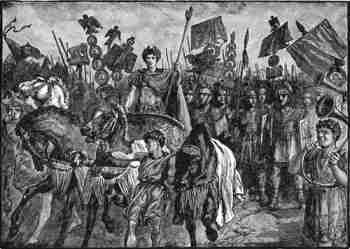
Here is another of these possible controversies. The war between of Rome and Carthage began in 264 B.C. at the inception of the Punic Wars. However, the formal peace treaty that ended the war came in 1985 A.D. That’s right, under one calculation, this war lasted 2,248 years! However, Carthage was completely destroyed by the Romans by 146 B.C., with Rome taking over all of Carthage’s territories. Thus, Carthage’s existence as an independent state was over at that time, which makes it hard to see how that was not the actual end of the war. Total years actually at war under the more conservative approach? 43 years for the First, Second, and Third Punic Wars — which is still a heck of a long time.
1. Hundred Years’ War
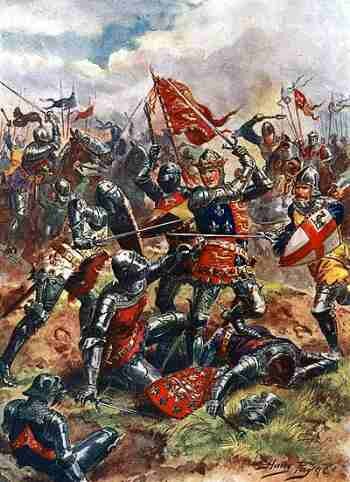
Although the name is not technically accurate (as this one lasted 116 years). The Hundred Years War consisted of a series of battles between England and France, beginning in 1337 and going to 1453. It began when King Edward III of England invaded France, claiming the throne of France for himself. His successors all kept the fight going (and kept ruling France), with fans of Shakespeare knowing that Henry V defeated the French at the Battle of Agincourt. However, the Scots then helped the French, and a woman by the name of Joan of Arc led the French to several successes in 1429. Paris was finally liberated from English rule in 1436, and the French finally sent the English out of France completely in 1453. Now they just tell dirty jokes about each other, which is much more civilized.






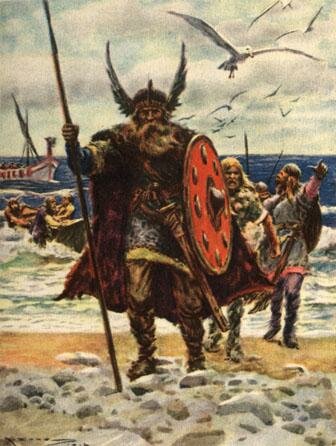



I think the Korean War is going on to it's 65th year.
I'm pretty sure that the Eritrean War of Independence was 30 years.
The Korean War should be added there… Its still ongoing by which North Korea and South just have this long ceasefire but no war ending, which is another reason why N and S Korea aren't unified.
That’s the war I was expecting to see. Yeah I saw a video on this war the other day and I couldn’t believe what North Korea was like.
Officially the longest war in history "The Arauco War" 300 hundred years:
Reference: http://en.wikipedia.org/wiki/Arauco_War
what about the cold war? 1945-1991
wasnt a war really
As far as the cold war goes you might want to tell that to all the dead in korea, bay of pigs, afghanistan, vietnam, etc etc.
The image from the Peloponnesian War is Wrong! The image depicts the battle of Issus/Gaugamela, which was between Makedonia (Alexander The Great) and Persia (Darius III), almost 150 years After the Peloponnesian War! Fix it!
300000 dead peloponesian wars disease and violence
I am never amazed at the complete lack of understanding people have today–its as if only a few know anything about History at all. Persia and Rome had war for around 600 years. It is true that it was not constant, uninterrupted war, however that does not seem to be a condition for this list. So without a doubt, the Persian-Roman wars were the longest in history.
You’re never amazed?
Persian-Roman Wars do not exist. You are talking about the Wars between the Roman Empire and the Parthian Empire, and it wasn't 600 years!
President Richard Nixon's "War on Drugs" is in its 40th year (began June 1971). He lost, but no-one seems to have noticed.
The Eighty Years' War (1568–1648) = 80 year (obviously)
The Scilly "war" (1651-1986) = 335 years
I'm missing these two…
The irsh fighing against the British in the 800 year war of independence.
i thing this war chased
in sri langa war 2010 200000<2……………………
Actually, there is an even loonger war i know of, and thats the war that lasted forr 335 years. You should amend your list if you can.
The Crusades was probably the longest war in history. It lasted for about 200 years from 1095 to 1291, with the continuing aim of taking control over Jerusalem and parts of the Holy Land, and was waged between Christians and Muslims.
Denmark and sweden where at war for 134 years or so
What about the hundred year war .
Denmark was also officially at war with the town of Huéscar in Southern Spain for 172 years, from 1809. Everybody just forgot about this war until 1981 when a peace treaty was finally signed.
Good and evil.
Since the beginning.
I think all of you are gay
lol, the dutch were in the Aceh war, the 30 years war, the 80 years war and the scilly war.
War – built-in, subconcious population control to distribute resources as needed. Longest war is therefore roughly 6,000 years.
I win!
What about the Three Hundred and Thirty Five Years’ War this was a theoretical state of war between the Netherlands and the Isles of Scilly
The korean war needs mentioning.
And indeed also the dutch war for independancy: 80 year war 1568-1648 with spain.
The danish-sorry-we-forgot-to-make-peace-for-172-years conflict and the dutch 335-year-Scilly-war-without-one-shot-ever-having-been-fired on the other hand should quickly be forgotten.
My quick research came up with
200,000 220,000 The Conquest of Chile 1536 1883 347 209,762 605
10,000,000 10,000,000 Warring States Era -475 -221 254 10,000,000 39,370
2,000,000 2,000,000 Circassian War 1763 1864 101 2,000,000 19,802
500,000 500,000 Assyrian wars of conquest -800 -700 100 500,000 5,000
30,000,000 60,000,000 Mongol Conquests 1201 1300 99 42,426,407 428,550
50,000 100,000 Prussian Crusade 1201 1300 99 70,711 714
11,000 11,000 Spanish American War 1898 1989 91 11,000 121
230,000 2,000,000 Eighty Years’ War 1568 1648 80 678,233 8,478
1,000,000 4,000,000 Hunnic Invasion 408 469 61 2,000,000 32,787
200,000 1,000,000 Albigensian Crusade 1208 1259 51 447,214 8,769
25,000,000 25,000,000 Qing dynasty conquest of Ming dynasty 1616 1662 46 25,000,000 543,478
200,000 200,000 Guatemalan Civil War 1960 1996 36 200,000 5,556
7,000,000 20,000,000 Conquests of Tamerlane 1370 1405 35 11,832,160 338,062
3,000,000 3,000,000 Afghan Civil War 1979 2012 33 3,000,000 90,909
300,000 300,000 First Burundi Civil War 1972 2005 33 300,000 9,091
69,000 69,000 Internal conflict in Peru 1980 2012 32 69,000 2,156
3,000,000 11,500,000 Thirty Years’ War 1618 1648 30 5,873,670 195,789
2,300,000 3,800,000 Vietnam War 1945 1975 30 2,956,349 98,545
From To War From To2 Durration Average D/Year
[...] year so it should be somewhere towards the top. So according to this website, Akorra.com (click here for the list and details), here is the [...]